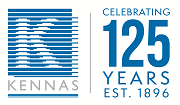
120% Deduction for Skills Training & Technology Costs
14 September 2022 | Kennas Client Resources
The Government has reinvigorated the 120% skills training and technology costs deduction for small and medium business.
An election ago, the 2022-23 Budget proposed a 120% tax deduction for expenditure by small and medium businesses on technology, or skills and training for their staff. This proposal has now been adopted by the current Government and details released in recent exposure draft by Treasury.
Timing
Two investment ‘boosts’ will be available to small and medium businesses with an aggregated annual turnover of less than $50 million:
- Skills & Training Boost
- Technology Investment Boost
The Skills and Training Boost is intended to apply to expenditure from 7.30pm ACT time on Budget night, 29 March 2022 until 30 June 2024. The business, however, will not be able to start claiming the bonus deduction until the 2023 tax return. That is, for expenditure incurred between 29 March 2022 and 30 June 2022, the additional 20% ‘boost’ deduction will not be claimable until the 2022-23 tax return (assuming the announced start dates are maintained if and when the legislation passes Parliament).
The Technology Investment Boost is intended to apply to expenditure from 7.30pm ACT time on Budget night, 29 March 2022 until 30 June 2023. As with the Skills and Training Boost, the additional 20% deduction for eligible expenditure incurred by 30 June 2022 will be claimed in the 2023 tax return.
The boost for eligible expenditure incurred on or after 1 July 2022 will be included in the income year in which the expenditure is incurred.
When it comes to expenditure on depreciating assets, the bonus deduction is equal to 20% of the cost of the asset that is used for a taxable purpose. This means that, regardless of the method of deduction that the entity takes (i.e., whether immediate or over time), the bonus deduction in respect of a depreciating asset is calculated based on the asset’s cost.
Technology Investment Boost
The Technology Investment Boost is a 120% tax deduction for expenditure incurred on business expenses and depreciating assets that support digital adoption, such as portable payment devices, cyber security systems, or subscriptions to cloud-based services.
The boost is capped at $100,000 per income year with a maximum deduction of $20,000.
To be eligible for the bonus deduction:
- The expenditure must be eligible for deduction (salary and wage costs are excluded for the purpose of these rules)
- The expenditure must have been incurred between 7.30pm (AEST), 29 March 2022 and 30 June 2023
- If the expenditure is on a depreciating asset, the asset must be first used or installed ready for use by 30 June 2023.
To be eligible, the expenditure must be wholly or substantially for the entity’s digital operations or digitising its operations. For example:
- digital enabling items – computer and telecommunications hardware and equipment, software, systems and services that form and facilitate the use of computer networks;
- digital media and marketing – audio and visual content that can be created, accessed, stored or viewed on digital devices; and
- e-commerce – supporting digitally ordered or platform enabled online
Repair and maintenance costs can be claimed as long as the expenses meet the eligibility criteria.
Where the expenditure has mixed use (i.e., partly private), the bonus deduction applies to the proportion of the expenditure that is for an assessable income producing purpose.
The bonus deduction is not intended to cover general operating costs relating to employing staff, raising capital, the construction of the business premises, and the cost of goods and services the business sells. The boost will not apply to:
- Assets that are sold while the boost is available
- Capital works costs (for example, improvements to a building used as business premises)
- Financing costs such as interest expenses
- Salary or wage costs
- Training or education costs
- Trading stock or the cost of trading stock
For example:
A Co Pty Ltd (A Co) is a small business entity. On 15 July 2022, A Co purchased multiple laptops to allow its employees to work from home. The total cost was $100,000 (GST-exclusive). The laptops were delivered on 19 July 2022 and immediately issued to staff entirely for business use. As the holder of the assets, A Co is entitled to claim a deduction for the depreciation of a capital expense.
A Co can claim the full purchase price of the laptops ($100,000) as a deduction under temporary full expensing in its 2022-23 income tax return. It can also claim the maximum $20,000 bonus deduction in its 2022-23 income tax return.
The $20,000 bonus deduction is not paid to the business in cash but is used to offset against A Co’s assessable income. If the company is in a loss position, then the bonus deduction would increase the tax loss. The cash value to the business of the bonus deduction will depend on whether it generates a taxable profit or loss during the relevant year and the rate of tax that applies.
Skills and Training Boost
The Skills and Training boost is a 120% tax deduction for expenditure incurred on external training courses provided to employees.
External training courses will need to be provided to employees in Australia or online, and delivered by training organisations registered in Australia.
To be eligible for the bonus deduction:
- The expenditure must be for training employees, either in-person in Australia, or online
- The expenditure must be charged, directly or indirectly, by a registered training provider and be for training within the scope (if any) of the provider’s registration
- The registered training provider must not be the small business or an associate of the small business
- The expenditure must be deductible
- Enrolment for the training must be on or after 7.30pm, 29 March 2022.
The training must be necessarily incurred in carrying on a business for the purpose of gaining or producing income. That is, there needs to be a nexus between the training provided and how the business produces its income.
Only the amount charged by the training organisation is deductible. In some circumstances, this might include incidental costs such as manuals and books, but only if charged by the training organisation.
Some exclusions will apply, such as for in-house or on-the-job training and expenditure on external training courses for persons other than employees. The training boost is not available to:
- Sole traders, partners in a partnership, or independent contractors (who are not employees)
- Associates of the business such as a relative, spouse or partner of an entity or person, a trustee of a trust that benefits an entity or person and a company that is sufficiently influenced by an entity or person.
For example:
Cockablue Pets Pty Ltd is a small business entity that operates a veterinary centre. The business recently took on a new employee to assist with jobs across the centre. The employee has some prior experience in animal studies and is keen to upskill to become a veterinary nurse. The business pays $3,500 (GST exclusive) for the employee to undertake external training in veterinary nursing. The training is delivered by a registered training provider, whose scope of registration includes veterinary nursing.
The bonus deduction is calculated as 20% of 100% of the amount of expenditure that can be deducted under another provision of the taxation law. In this case, the full $3,500 is deductible under section 8-1 of the ITAA 1997 as a business operating expense. Assuming the other eligibility criteria for the bonus deduction are satisfied, the bonus deduction is calculated as 20% of $3,500. That is, $700.
In this example, the bonus deduction available is $700. That does not mean the business receives $700 back from the ATO in cash, it means that the business is able to reduce its taxable income by $700. If the company has a positive amount of taxable income for the year and is subject to a 25% tax rate, then the net impact is a reduction in the company’s tax liability of $175. This also means that the company will generate fewer franking credits, which could mean more top-up tax needs to be paid when the company pays out its profits as dividends to the shareholders.



